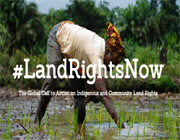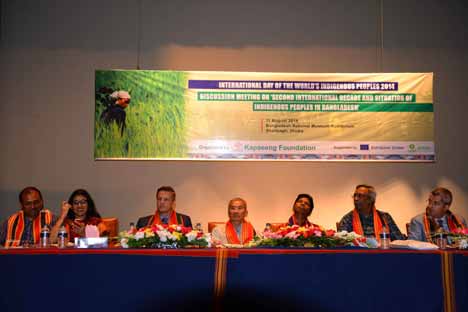
On 11 August 2014, Kapaeeng Foundation organized a discussion meeting on “Second International Decade and Situation of Indigenous Peoples in Bangladesh” at National Museum auditorium in Dhaka. The meeting was organized to celebrate the occasion of International Indigenous Peoples Day 2014 with the support of European Union and Oxfam.
Honorable Chairman of Chittagong Hill Tracts Regional Council and also President of Bangladesh Indigenous Peoples Forum, Mr. Jyotirindra Bodhipriya Larmawas present as guest of honor while Mr. Rabindranath Soren, Chaiperson of Kapaeeng Foundation presided the program. Among others, Mr. R A M ObaidulMuktadir Chowdhury MP, Honorable Chairman, Parliamentary Standing Committee on Ministry of Chittagong Hill Tracts Affairs; Mr.. Fazle Hossain Badsha, MP; Peer Fazlur Rahman Misbah, MP; Professor Dr. Sadeka Halim, Former Information Commissioner; Mr. Snehal V Soneji, Country Director, Oxfam; Mr. Gonzalo Serano De La Rosa, representative of the European Union; Mr. Mika Kanervavuori, representative of UN; Mr. Sanjeeb Drong, General Secretary, Bangladesh Indigenous Peoples Forum; were present as special guest in the event. Ms. Chandra Tripura, General Secretary of the Bangladesh Adivasi Cultural Forum delivered welcome speech and Mr. PallabChakma, Executive Director of Kapaeeng Foundation moderated the discussion meeting.
In his speech Mr. Jyotirindra Bodhipriya Larma (SantuLarma) said, State does not fulfill the rights of the indigenous people. Social discrimination is also continuing against them. He allegedly said that the government has not fulfilled promises. The government is very far from the full implementation of CHT Accord. It is delayed by the government.
He further said, ‘in the 15th amendment of the constitution, the government named us assmall ethnic group. But it is much dishonored for us to introduce such type of recognition’. He also said, ‘today if I call our Prime Minister as the largest ethnic group of Bangladesh, then how she feel?’He urged to the government to re-amend of the constitution and replace the term ‘small ethnic group’ with ‘Adivasi’. Aggrieved at the government’s recent request to refrain from using the word “Adivasi”, he said the government treated indigenous people as zoo animals and called them by whatever name it liked.
In his speech R A M Obidul Moktadir Chowdhury said, ‘we can use the Adivasi term, though the term is not established by the constitution, however, the constitution does not say anywhere that the term is not usable. So anyone can use the term and we all have to work together for the rights of indigenous peoples.’ He mentioned that the government is determined to implement the ILO Convention No. 107 and hoped as a member State of the United Nations, the government has to sign the other international convention/treaty/ agreement gradually.
Fazle Hossain Badsha MP said, Adivasis also participated and fought in the war of liberation to make an independent country and dreamed their rights would be fulfilled in new country, but they still did not get their right. State have always been depriving them and continue the fixation behavior to the indigenous people. He mentioned that ‘the diversity of indigenous peoples is our resources. To protect these resources we must have to protect their rights.’ He demanded to immediate implementation of the CHT Peace Accord, establish an effective land commission for hill districts and the establishment of another separate land commission for plain land indigenous peoples. He urged a revision of the constitution, and said, “I will keep trying to press the government to amend the constitution.”
Professor Dr. Sadeka Halim said, indigenous peoples are politically excluded by the Bengali people, therefore the identity question of Adivasi can be resolved by political movement. She also mentioned the indigenous women are the most vulnerable in the society. She demanded to ensure security of indigenous women and their fair justice. She also added the indigenous people had little achievement in the last two decades. Appreciating the lawmakers who joined the discussion, she said when a legislator addressed them as “Adivasi”, it became much more acceptable.
It is to be mentioned that in a PID handout on August 7, the government asked participants of different programs, discussions and talk shows on International Day of the World’s Indigenous Peoples to refrain from using the word “Adivasi” as there is no Adivasi in Bangladesh as per the constitution.
Sanjeeb Drong Said, rights of indigenous people is human rights. If government does not fulfill the rights of indigenous peoples, we cannot say the human rights situation is develop in Bangladesh. So the government has to protect and promote the rights of IPs. He also said, Land is the life of indigenous peoples. But day by day indigenous peoples arelosing their land. To protect the land of IPs, I demand to setup separate land commission for IPs.
He also mentioned that, “We all are humans, and despite this we face discriminations and injustice.”
In his speech Mr Mika Kanervavuori said, United Nations has taken a lead role to champion the rights of indigenous peoples, and seeks also to ensure the preservation of their unique societies, cultural practices and diversity. Every year 9th August UN celebrate the day of international indigenous peoples day to promote their rights and we hope one day the diversity will be strength for our development.
He mentioned that, the govt. of Bangladesh adopted article 23 A and also 27, 28 and 29 article in constitution is really positive. It is the strong safeguards of protect and promote the rights of indigenous peoples in Bangladesh.
Mr Snehal V Soneji said, ‘we are working for plain land indigenous peoples, especially with the women. In our experience we saw there are many gaps between indigenous peoples and the government.’ He mentioned, ‘obviously indigenous peoples are loving this country and they want to be part of nations development.’
Pir Fazlur Rahman Mp said, Land grabbers are still grabbing lands of indigenous peoples in political protection. He urged to the political leaders not to support the land grabbers.
Mangal Kumar Chakma, Advisor of Kapaeeng Foundation presented a keynote on “Second International Decade and Situation of Indigenous Peoples in Bangladesh” at the beginning of the discussion. In the keynote paper, he mentioned that despite a number of fruitful outcomes like adoption of the UNDRIP, successes during second international decade remain limited to policy level. A huge gap still exists between adopted declaration and implementation of it. The 6th Five Year Plan of Bangladesh government and the strategic plan of the National Human Rights Commission emphasized on ratification of ILO Convention 169. The 6th Five Year Plan also mentioned about development and promotion of human rights of indigenous peoples. However, the provisions that concerns about them still remained at policy stage.
Mangal K Chakma also mentioned that during 15th amendment of Bangladesh Constitution, a new article (23 KA) naming ‘culture of tribes, minor races, ethnic sects and communities’ was included in the Constitution, which is the first provision in the Constitution that specifically mentions about indigenous peoples in Bangladesh. However, the article only concerns about preservation of their culture and tradition and hence ultimately ignores right to land and self-determination, political participation and participation in decision making process of indigenous peoples. Unfortunately, without ensuring aforementioned rights, it is not possible to preserve culture and tradition of indigenous peoples.
At the end of the discussion, the members of Bangladesh Adivasi Cultural Forum performed a colorful cultural program.



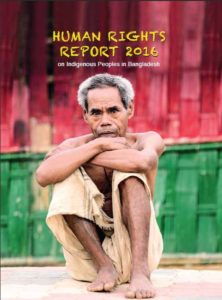
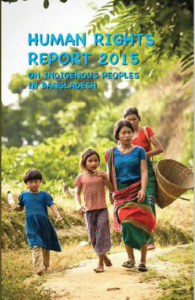
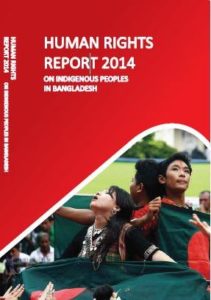
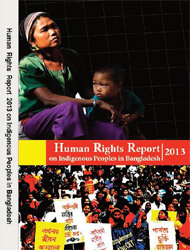
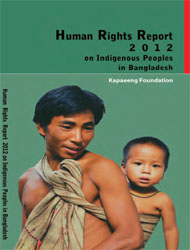
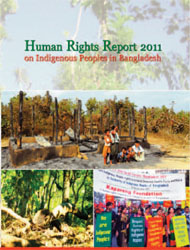
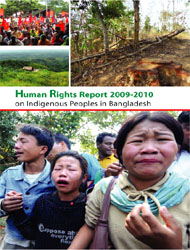

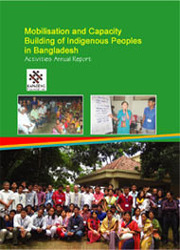



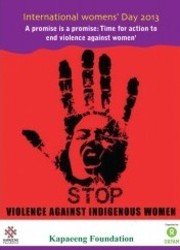
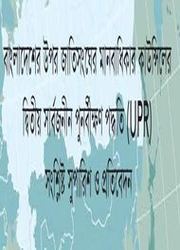
 August 19th, 2014
August 19th, 2014  KapaeengUser
KapaeengUser  Posted in
Posted in 